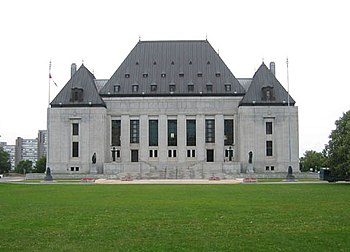 |
| Janet Morris, Director of Bet Tzedek's Family Caregiver Program, with clients. (Photo credit: Wikipedia) |
On November 28, 2014, the Government of Canada issued Ministerial Instructions completely overhauling Canada's caregiver immigration programs.
The changes consist of:
- Suspending the in-take of applications under the existing Live-in Caregiver Program;
- Establishing the Caring for Children Class; and
- Establishing the Caring for People with High Medical Needs Class.
Suspending the in-take of applications under the existing Live-in Caregiver Program
No new permanent resident applications under the Live-in Caregiver Class will be accepted for processing unless they are supported by evidence that the underlying work permit associated with the foreign national's initial entry to Canada as a live-in caregiver was based on a Labour Market Impact Assessment application that the employer requested on or before November 30, 2014.
Establishing the Caring for Children Class
Individuals will be eligible to apply for permanent residence under the Caring for Children Class if they:
- Have acquired, within the four years of applying for permanent residence, at least two years of full-time work experience in Canada as a Home Child Care Provider, within the meaning of that occupation as set out in National Occupational Classification code 4411, other than experience as a foster parent;
- Meet the employment requirements of being a Home Child Care Provider;
- Have attained (through the completion of a language exam) a level of English or French language proficiency at Canadian Language Benchmark 5,
- Have obtained either a Canadian educational credential of at least one year of post-secondary studies, or a foreign equivalent as demonstrated through an educational credential assessment; and
- They intend to reside in a province other than Quebec.
Although the Ministerial Instructions do not mention any application caps for the Caring for Children Class, in a press release on October 31, 2014, Citizenship and Immigration Canada announced that the program would be capped at 2,750 applications per year.
Establishing the Caring for People with High Medical Needs Class
Individuals will be eligible to apply for permanent residence under the Caring for People with High Medical Needs Class if they:
- Have acquired, within the four years of applying for permanent residence, at least two years of full-time work experience in Canada in one of the following occupations:
- Registered Nurse or Registered Psychiatric Nurse within the meaning of National Occupational Classification code 3012;
- Licensed Practical Nurse within the meaning of National Occupational Classification code 3233;
- Nurse Aide, Orderly, or Patient Service Associate within the meaning of National Occupational Classification code 3413; or
- Home Support Worker, but not Housekeeper, within the meaning of National Occupational Classification 4412.
- Meet the employment requirements of their respective occupation;
- Have attained (through the completion of a language exam) a level of English or French language proficiency at Canadian Language Benchmark 7 for Registered Nurses or Psychiatric Nurses, and Canadian Language Benchmark 5 for the remaining professions,
- Have obtained either a Canadian educational credential of at least one year of post-secondary studies, or a foreign equivalent as demonstrated through an educational credential assessment; and
- They intend to reside in a province other than Quebec.
Although the Ministerial Instructions do not mention any application caps for the Caring for Children Class, in a press release on October 31, 2014, Citizenship and Immigration Canada previously announced that the program would be capped at 2,750 applications per year.
More information about the Ministerial Instructions can be found here.
Source: Steven Meurrens, Barrister & Solicitor









